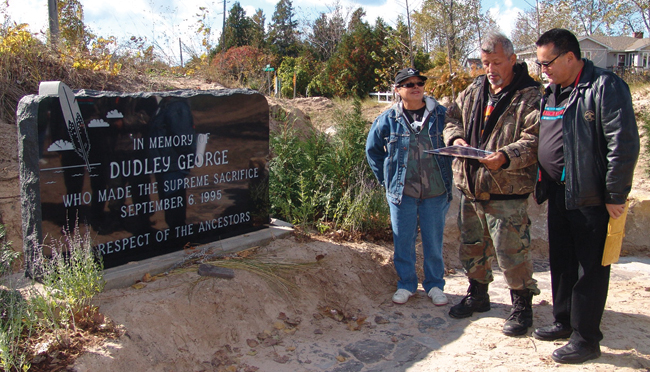‘Cannot let Dudley George be forgotten’: Madahbee

UOI OFFICES (September 4, 2015) –September 6, marks the 20th anniversary of the shooting death of unarmed protester Anthony “Dudley” George on what was then, Ipperwash Provincial Park. He was killed by an Ontario Provincial Police sniper.
“We cannot let Dudley George be forgotten,” says Anishinabek Nation Grand Council Chief Patrick Madahbee. “It is important that we ensure that the Ipperwash recommendations are implemented.”
On May 31, 2007 the Report on the Ipperwash Inquiry was released to the public. 98 recommendations were made.
“The Union of Ontario Indians is still working on the main priority areas from the report recommendations in the areas of treaty implementation, jurisdiction, heritage and burials, First Nation policing and public education,” says Madahbee. “One great example of this is the teachers resource that our organization has ‘We are all Treaty People’ that helps students in Grades 1-8 learn about the treaty relationship.”
The Union of Ontario Indians has been supporting Kettle and Stony Point First Nation for decades.
“Since Kettle and Stony Point First Nation is an Anishinabek Nation community, the Union of Ontario Indians became involved early in the dispute between the First Nation and the Province,” says Madahbee. “On May 22, 1947, the UOI presented a letter from Chief Frank Bressette to parliament which brought the land dispute issue into the public eye.”
In the 1960s and 1970s, the UOI began to lobby on behalf of the Kettle and Stony Point First Nation, attracting increasing political and media attention.
Through the UOI’s political office, support was given in lobbying for an inquiry into George’s death in 1995. The goal of the UOI’s participation in the Inquiry was to develop grass roots recommendations that would lead to the building of healthy relationships between Anishinabek First Nation governments and police services.


